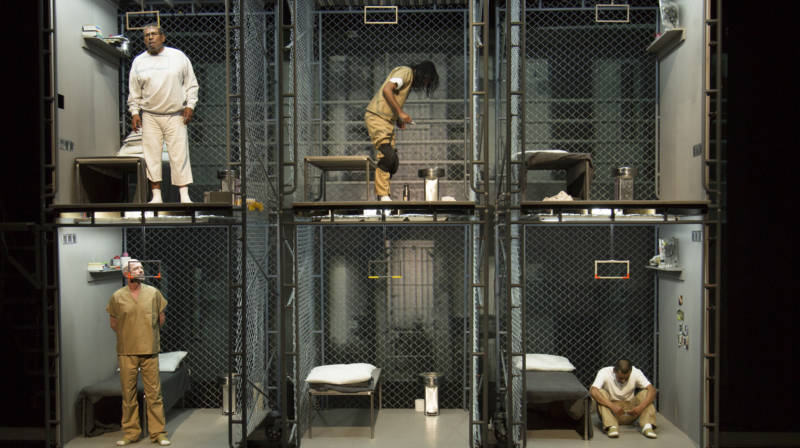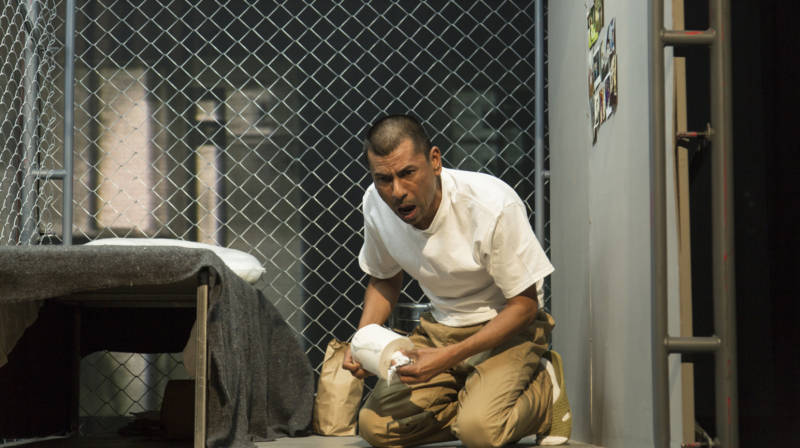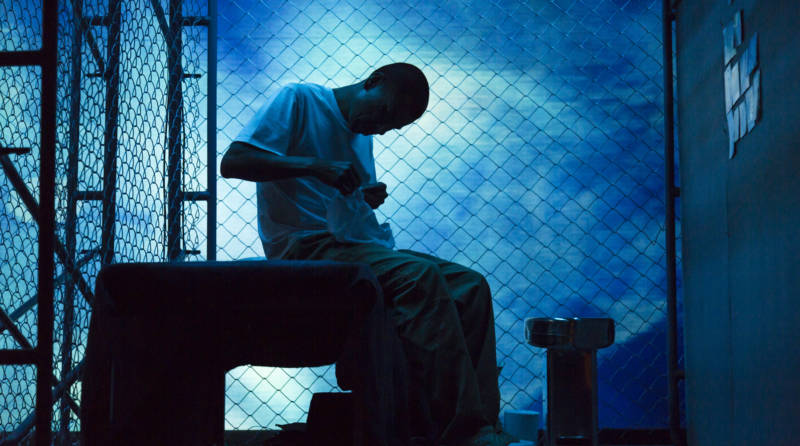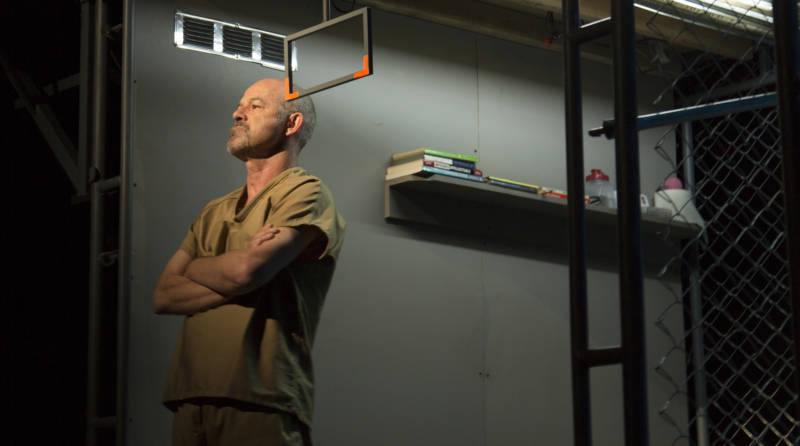Sarah Shourd’s The Box is an unrelenting take on solitary confinement. The drama, currently playing at Z Space in San Francisco’s Mission District, is an odd mélange of theatrical styles: political exposé, prison melodrama, avant-garde sound poem, muckraking journalism, and, strangest of all, a mismatched buddy tale between a Black Panther, a Neo Nazi, and a gentle, artistic Latino inmate accused of murder.
It’s as if the play is locked in an aesthetic and political battle over how best to depict the brutalizing nature of incarceration. You can feel that Shourd, a journalist and political activist as well as a playwright, believes that the choices she makes matter, and that the consequences are great. In many ways, she is bringing the sensibility of the journalist to the theater, and with it a sense of urgency missing from many prison dramas.
Shourd is somewhat famous for accidentally crossing the Iranian border while hiking with two friends in Kurd-controlled Northern Iraq in 2009. Iranian guards captured the befuddled trio — shocked that they were in Iran — and all of sudden they found themselves accused of being CIA spies. Shourd spent 410 days in jail as a political prisoner, much of it in solitary confinement. So she knows what can happen to a mind under these conditions, and the play is powerful when it sticks to the experiential nature of minute-by-minute prison life.
When you walk into the cavernous auditorium at Z Space — having already heard the unsettling screams coming from the stage from the lobby — you’re confronted with a wall of stacked cells, three on top and three on the bottom. Strange, violent, and random industrial sounds pierce through the chorus of yelling inmates. Instead of a dead gray wall, the background is a kaleidoscope of distorted images and shapes. As with the worst nightmares, every once in a while a clear image will break through the generalized sense of dread.
Sean Riley’s set, Tom Ontiveros’s projections, and Jon Bernson’s sound are, as a unit, an aggressive, disorienting, and seemingly apt depiction of the psychic dislocation of solitary confinement. “Immersive” has replaced “cutting edge” as the go-to phrase of experimental theater, catnip for funders and the public alike. But here, without taking the audience on a field trip or changing the orientation of the stage, the designers have placed us in the vortex of what it must feel like to live in a cage, alone and untouched.

The beginning of The Box is blessedly free of explanation. There is no set up and no world-building — just the actions of prison life. One prisoner, Pintu Nath (in a crazed, committed performance by J Jha), seems caught in an unending psychic breakdown, compulsively cleaning his toilet with a toothbrush; another, Rocky Ashburry, screams his way onto the stage and hunches in his cell, more scared animal than human being; while a third, Carlos Aviles, is taunting and cruel, shouting obscene insults at whomever seems weakest in the moment. I could have watched that for hours.




